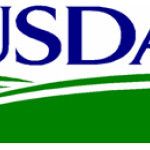- Industry: Government
- Number of terms: 41534
- Number of blossaries: 0
- Company Profile:
The Arctic Circle is an imaginary circle at latitude 66°30' N, around the north pole.
Industry:Geography
Persone che hanno lasciato il luogo di un paese dove risiedevano per andare a vivere definitivamente in un altro paese straniero.
Industry:Agriculture
Farmers use global positioning (GPS) technology involving satellites and sensors on the ground and intensive information management tools to understand variations in resource conditions within fields. They use this information to more precisely apply fertilizers and other inputs and to more accurately predict crop yields.
Industry:Agriculture
Agreements among a group of countries to extend special trading advantages, usually tariff rates that are lower than most-favored nation rates. The U.S.’s Caribbean Basin Initiative and the EU’s Lome Convention which provides preferential access for exports of former EU member countries’ colonies in Africa, the Pacific and the Caribbean are examples of preferential trade agreements.
Industry:Agriculture
Refers to activities on the farm or ranch that occur before crop or livestock products are sold. "Preharvest food safety activities," for example, is a term often used to describe USDA’s efforts, through research and cooperative work, to foster changes in on-farm production that can reduce public health risks in live animals before they are sent to slaughter.
Industry:Agriculture
The relationship between the change in the price of a commodity and the corresponding change in the quantity that is sold. If a small change in the price is accompanied by a relatively large change in the quantity sold, demand is said to be elastic (responsive to price changes). But if a large change in the price is accompanied by a small change in the quantity sold, demand is said to be inelastic. The demand for many farm products is relatively price inelastic. As a result of low price elasticity of demand, shifts in supply can have large impacts on prices. For example, the presence of surpluses results in disproportionately large price declines, and conversely shortages result in large price increases. For these reasons, agriculture often is described as an inherently unstable industry.
Industry:Agriculture
Current price expressed as a proportion to the same price in an earlier time period, commonly called the base period. Monthly price indexes computed by the National Agricultural Statistics Service are the index of prices received by farmers and the index of prices paid by farmers for commodities and services, interest, taxes, and farm wage rates. The ratio of these two indexes is referred to as the parity ratio.
Industry:Agriculture
Land that is best suited to and available for the production of food, feed, forage, fiber, and oilseed crops. It can be cropland, pastureland, rangeland, forestland, or other land. It has the soil quality, growing season, and moisture needed to produce high yields of crops each year economically, if managed according to acceptable farm practices. Prime farmland produces the highest yields with minimal expenditure of energy and economic resources and does so with the least damage to the environment. Of the 334 million acres of prime farmland, 216 million are in cropland use, according to the 1992 national resources inventory. See unique farmland.
Industry:Agriculture
The right to control the disclosure of personal information; often referred to as confidentiality, but more accurately might be called data protection. Many landowners, including farmers, have grown concerned that information about the condition of their land could adversely affect market and other values.
Industry:Agriculture
A nongovernmental, nonprofit organization that provides economic and social assistance to people in need, often in foreign countries. PVOs play an important role, along with cooperatives, in distributing U.S. food aid and implementing development projects under P.L. 480 Title II.
Industry:Agriculture
